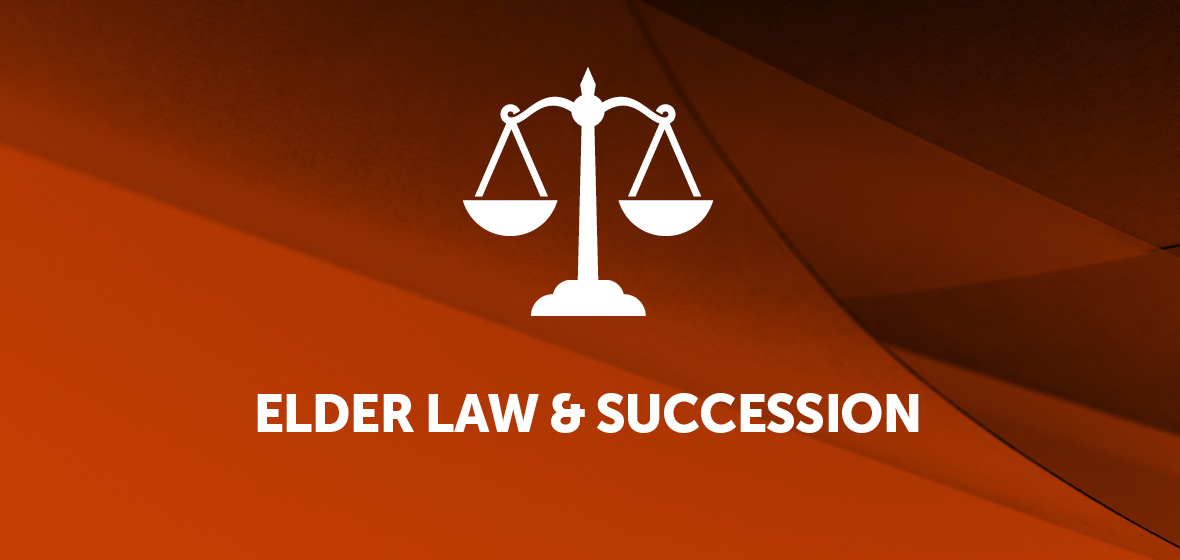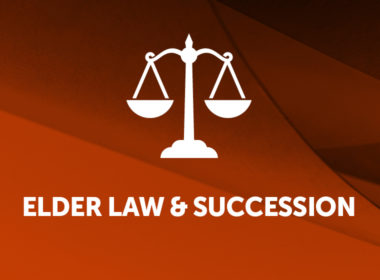Key decisions
- Chalik v Chalik [2024] NSWSC 116 (Essential validity of will)
- Etherton v Mitchelmore [2024] NSWSC 170, Nurse v Morfitt [2024] WASC 96, The Estate of Smith [2024] NSWSC 568, In the Estate of Noel Joseph Edmund Thompson [2024] ACTSC 110 and The Estate of Young [2024] NSWSC 569 (Informal will, informal alteration and lost will)
- TNM (Review of Enduring Power of Attorney) [2024] TASCAT 31, White v White by her tutor the NSW Trustee and Guardian [2024] NSWSC 222, RPE [2024] QCAT 109, KT [2024] TASCAT 59 and FJN (Guardianship) [2024] VCAT 310 (Elder financial abuse)
- Kramer v Stone [2023] NSWCA 270 (Proprietary estoppel)
NOT best practice assessment of testamentary capacity
Margaret Chalik’s last will was made when she lacked testamentary capacity and was a result of testamentary undue influence (meaning coercion). This was contrary to her solicitor’s ‘honestly and genuinely held …view that the deceased had testamentary capacity’. The Court in Chalik v Chalik [2024] NSWSC 117 (Henry J) (at [316]–[320]) came to a different opinion, mainly because of the following factors:
- the solicitor had no file notes of his attendances with the deceased;
- his evidence was based solely on his recall of events nine or ten years prior;
- one of the first things the client said to the solicitor was that she did not know why she was there to see him;
- the deceased was elderly, observed to be not in robust health, lacked an agile mind, responded slowly and would not engage when the solicitor attempted to ask questions about leaving a person out of the will;
- they conversed in Yiddish, a language which was neither the deceased’s primary or secondary language (which were Russian and English) and the solicitor’s own Yiddish was ‘rusty’;
- the solicitor detected some unease and discomfort when he asked her to come alone;
- she appeared to be dependent on the son she was proposing to favour;
- the solicitor did not ask the deceased about the value and extent of her estate and assumed she knew she owned real estate based on a conversation with the son some years previously;
- the solicitor did not ask the deceased questions to test her memory, her ability to recall and reflect on the claims on her estate or whether she had a previous will and, if so, why she was changing it;
- the solicitor did not ask the son who her attorney and guardian were, who had arranged the meeting and whether there was any reason to be concerned about his mother’s mental capacity, including as a result of any diagnosis, behaviour, medication or the like; and
- the solicitor admitted that his memories might have intermingled over two meetings 18 months apart.
In finding a lack of testamentary capacity, the Court observed that the ‘comprehending and weighing of [another son, Isaac’s] claim required the deceased to be able to weigh up and make a judgment about whether there was a reason to depart from her longstanding intention of sharing her estate equally between her two sons, as provided for in the 1998 Will. That would require the deceased to be able to mentally process and consider historical facts as well as recent events, such as whether, in fact, [the disenfranchised son] Isaac was seeing her regularly or at all and the impact of [her other son] Gregory on that. Given that the deceased had lost insight into her own condition and care needs, her short-term memory loss meant she could no longer retain information and she had shown poor judgment and impulsivity in her conduct, it is difficult to see how she had the cognitive capability to recall, reflect and reason about those matters’ (at [323]).


